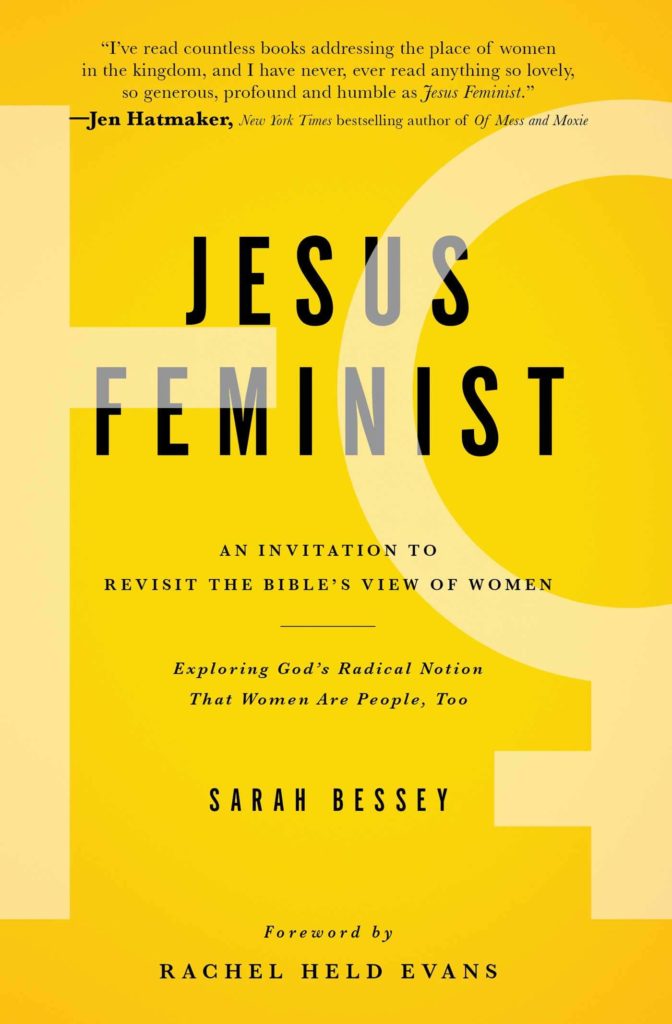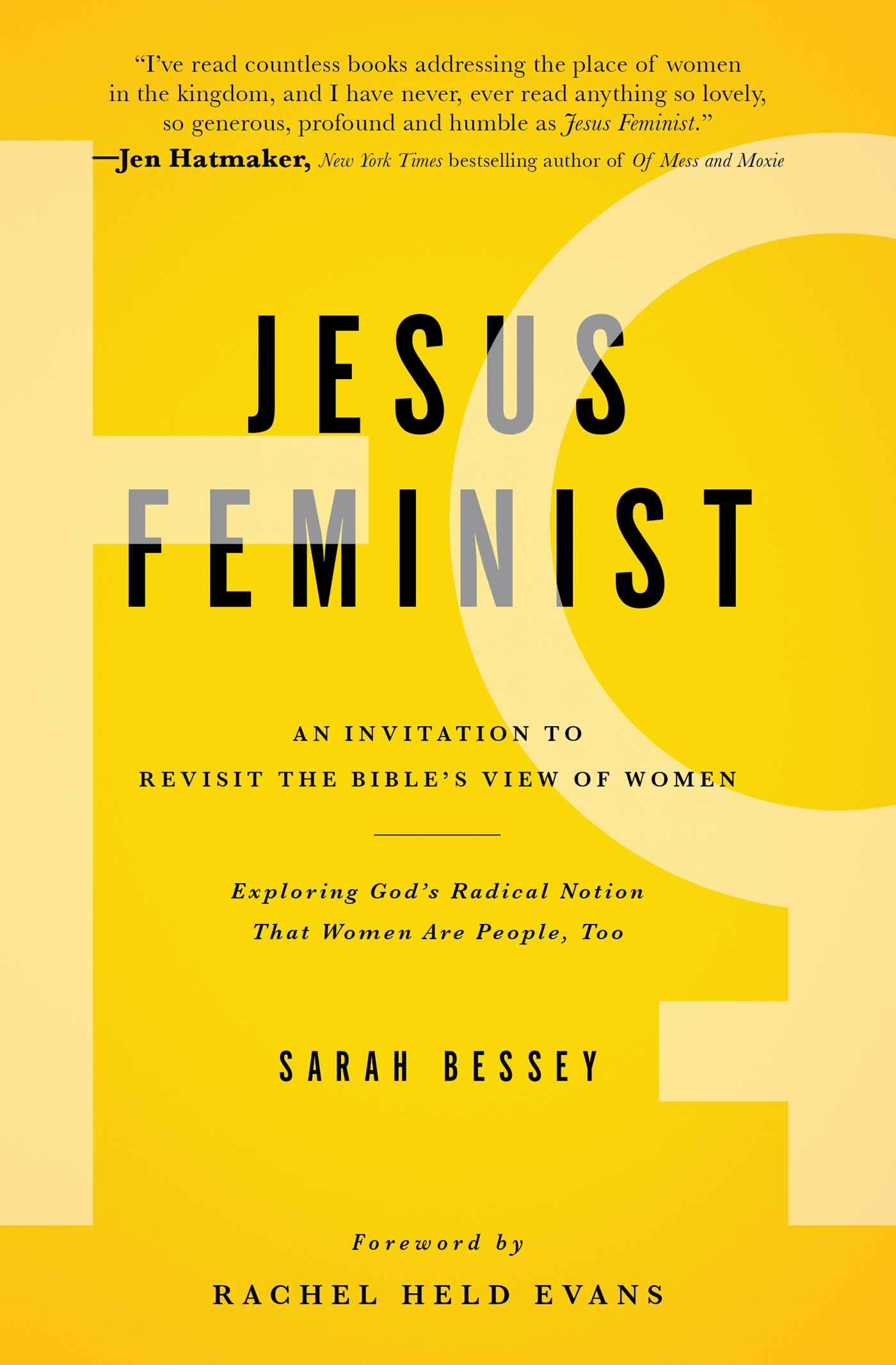Sarah Bessey is tired of fighting for women’s equality within the church. She’s tired of being irritable and reactionary against that segment of the Christian population that remains convinced that women must do women things, and men must do men things. Her solution was to dial down the rhetoric, ease off on the debate and create a comfortable folksy atmosphere. The goal was to help the reader feel as though she were sitting by a fire, sipping coffee among friends. All sharp edges off, lots of stories, a meandering reflection on why it’s OK for women to have full freedom in the church.
She loves her kids, tells stories about them, that’s nice, she even gave birth to one in a parking garage! “My tiny’s” is what she calls her offspring, but you can only read “my tiny’s” so many times in a book before you start to lose your mind! Also, in an attempt to be more conversational, she began finishing her sentences with little rhetorical flourishes such as “isn’t it?” Or “wouldn’t it?” Between the meanderings, the “tiny’s,” and the “isn’t its?” I found this book hard to enjoy. However, I don’t want to make my review all about stylistic criticisms. I’m glad I persevered in reading the book, Bessey gave me a lot to think about.
Slavery & Women’s Equality in the Church. The Bible offers no prohibition against slavery. How is it that Christians, the world over, have come to reject a practice considered acceptable in Scripture? The overarching narrative of freedom in Jesus trumps any one verse of Scripture that might stand against it. Gender inequality in the church is just another blind spot, like slavery, that the grand story of God will inevitably expose and cast aside. Interestingly, this is the exact same argument that Matthew Vines makes in his book God and the Gay Christian. At what point does a person determine that God’s plan of redemption, freedom and justice eliminates the need to obey certain “Christian” behaviours, actions, traditions and even Bible verses? Is it oppressive to forbid women to speak in church, but not oppressive to prohibit same-sex attracted individuals the freedom to act on those impulses? The ecclesiastical struggle for women in ministry is not at all the same conversation as sexual ethics, even though people like Matthew Vines vigorously claim that it is. Even so, is this argument just a slippery slope into full licence as some claim? Christianity has evolved over time, and the priorities, standards, and non-negotiable’s of Christian living have morphed, there is no denying that. However, this kind of talk is going to be a bit unnerving for “Bible thumpers” and proof-text type people. Bessy is clear, it’s not “biblical” to hide behind a handful of Bible verses to protect certain traditions that functionally repress half the body of Christ. Patriarchy, she says, while an undeniable historical reality is not God’s plan for his children.
John MacArthur’s recent comment telling Beth Moore to “go home” amid raucous applause just ruined Sarah Bessey’s attempt to ease off on the debate. It looks like the gloves are coming off again. Click Here to read her thoughts. Personally, I think John MacArthur should apologize to Beth Moore for his uncharitable mockery. Then he should “go home” for a long while. A self-imposed time out is in order for him, he shouldn’t leave his home until he can figure out how to speak like a Christian person.
A Plea “A woman loved and free is beautiful. Release the women! Let their gifts find their full expression in the body of Christ.” Says Sarah Bessy. It’s basically impossible for me to disagree with this plea, or in any way, stand against it.
- The whole debate needs to fade into the sunset
“I’m through wasting my time with debates about women should do this, and women should not do that boundaries. I’m out, what an adventure in missing the point! These are the small small arguments about a small small God. Our big and good God is at work in the world, and we have been invited to participate fully; however, God has gifted and equipped and called each of us.”
Sarah believes that every follower of Jesus is 100% free in gifting. There are no gender limitations on who and how God gifts his children, to say otherwise, according to Sarah, is to stray away from the good news. No argument here.
- All we need is love. One day Sarah’s crammed closet full of doubts, questions and hurts crashed open and spilled all over the floor. She recounts those uncertain moments.
“I know nothing for sure, is God even real, what about my Bible, church, people, life, meaning, loss, grief disillusionment, soul-weariness, goodness evil, tragedy suffering justice women, equality, politics? I know nothing, nothing, nothing.”
What brought her back into faith? It wasn’t doubling down on her opinions. Instead, it was the realization that;
“The nature, identity, soul, character and action of God is love… Everything was resurrected on that truth…Faith is less of a brick edifice of belief and doctrine and right answers…it is a wide-open sky ringed with pine trees black against a cold sunset, an altar, a welcome, bread and wine, an unfathomably ferocious love and a profound sense of my belovedness.”
She had been so involved in pushing, contesting and struggling to be right that she lost her way. Her salvation came when the struggling ceased under the comforting weight of knowing that she was loved by God. Everything else became incidental. I can see this sort of simple yielding to divine love being hard to accept for professional theologians who pride themselves on correct doctrine.
But what about those darn Bible verses?
- Stop Prooftexting! There is no such thing as “sola Scriptora” — nice try reformers. Reason, experience, church history and the Bible is how Christians shape the direction of their lives, and God works in and through all of it. Proof texting is a terrible idea. Sarah realizes that people want black and white answers but,
“Scripture is a rainbow arch across a stormy sky. Our scared book is not an indexed answer book or life manual. It’s a grand story, a mystery, an invitation, it’s truth and wisdom and a passionate love letter.”
These verses are far from clear. As far as “black and white” answers on the relevant passages to this debate goes, there aren’t any. Bessy quotes John Stackhouse:
“I had been reading yet another explanation of I Timothy 2:11-15 easily one of the most obscure of the classic passages on this matter. I remember quite clearly now more than 20 years later. Putting the book down on my lap and realizing this insight. “nobody could explain this passage. To be sure I had been reading more than a dozen attempts to explain this passage, some of them were ingenious. A few were even likely, but it struck me with paradigm shaking force that no one could explain all the clauses in this passage with full plausibility. I then began to think that this problem was true not only of expositions of this one text but of the whole gender question. No one that I had read and I had read quite a few, could put all the relevant texts together into a single finished puzzle with no pieces left over, with none manufactured to fill in gaps and with none forced into place. We should not wait to come to a theological conclusion until the happy day in which we have arranged all the relevant texts. Instead, we should look at all the texts as open-mindedly as possible. And see if among the various competing interpretations there is one that makes the most sense of the most texts.”
For Sarah and presumably Stackhouse, that means that texts such as I Corinthians 14 should always be interpreted in light of I Corinthians 12 and Acts 2 and the many other passages which reveal women both equal and involved in the New Testament church. It is a more correct hermeneutical strategy to craft reasonable explanations against a couple of prohibitions than to go to great pains to explain away all the female involvement so clearly revealed in the N.T.
- Paul is for subversion without revolution. The women, the children, and the slaves are who Paul is supporting in his writings. But he is writing within the parameters of Roman Law. So men were still the boss in that system, but make no mistake, Paul is attempting subversion without the revolution. He is playing within the rules of his day, but his vision goes far beyond these cultural forms.
- Hierarchy is not the thing the good news cares about. Sarah makes the case that there is no hierarchy in the trinity. All members work together in humility, love, and mutual submission. Further, she says, neither is there to be a hierarchy in marriage, which is a picture of God. When Paul uses Christ and the Church to illustrate the relationship between husband and wife, it is not to justify a power grab. Instead, it should be understood as the most beautiful picture of mutual submission born out of love. This passage was not intended to spark endless arguments over who should be in charge, and what the specifics of being the boss might look like at home or at a church gathering. Even the O.T. word for “Helper” used to describe women is the same term that is used to define “warrior” God who comes to rescue his people. The relationship between husband and wife is not, first of all, hierarchical. That thought is entirely out of place.
This book is forcing me to evaluate again how I understand, interpret, and apply Scripture. It’s a necessary exercise. She is right, we do want “black and white” answers, but that is not how life works nor how Scripture works. On the whole, I agree with Sarah Bessey, at least, far more than I do with John MacArthur. His recent outburst helped clear up for me what side I’m not on, that’s for sure.




